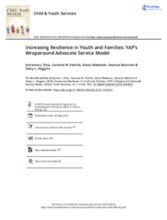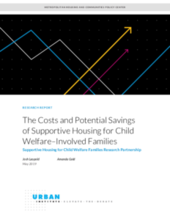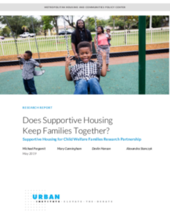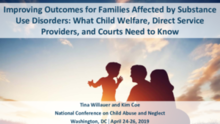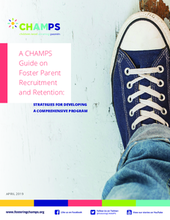Displaying 131 - 140 of 437
In this article, a team of practitioners explores the basis, implementation, research base, and future application of Youth Advocate Programs, Inc. (YAP)’s dual-prong service model in building resilience in youth and families in the U.S., providing comprehensive, community-based services as an alternative to institutionalization for youth and young adults with complex needs and challenges.
The present study uses system dynamics modeling to inform decision-making by testing policies for scaling the Family Unification Program (FUP), a U.S. federal initiative connecting inadequately housed families involved in child welfare with long-term rental subsidies to avoid foster placement.
The Global Social Service Workforce Alliance hosted the 6th Annual Social Service Workforce Strengthening Symposium on the topic of using evidence as a catalyst for advocacy efforts to support the social service workforce.
This study evaluated the effectiveness of the US Department of Health and Human Services’ Administration for Children and Families funded Partnerships to Demonstrate the Effectiveness of Supportive Housing for Families in the Child Welfare System, a five-year, $25 million demonstration that provided supportive housing to families in the child welfare system, in five sites. This report summarizes the results of the cost study, which estimates the costs of the housing and services offered in the demonstration and any savings, or additional costs, resulting from the demonstration’s effects on families’ use of homeless programs and child welfare services.
This report provides findings from the Urban Institute's impact analysis of a program that provided supportive housing to families in the child welfare system in the US.
This chapter from Re-Visioning Public Health Approaches for Protecting Children argues that mentoring for children in foster care in the US should be considered as one potential strategy for the prevention of adverse outcomes among this vulnerable population.
The purpose of this chapter from the book Re-Visioning Public Health Approaches for Protecting Children is to document and discuss the conceptual, methodological, ethical, and infrastructure related issues that arise in supporting the research needs of child welfare organizations in Canada in order to implement evidence-based practice models, while providing examples of the usefulness and challenges of using administrative child welfare data to inform policies and programs.
This presentation was given at the National Conference on Child Abuse and Neglect in Washington, DC in April 2019. The presentation outlines data on the prevalence of parental substance abuse as a contributing factor for child removal in the US and highlights practices that work for families with substance abuse disorders.
This new guide can assist child welfare agencies in planning and implementing best practices in foster parent recruitment, development and support. It features six key drivers for driving better results and offers specific strategies for achieving and sustaining excellence in foster parenting.
This article describes current applications of Trauma-Focused Cognitive Behavioral Therapy (TF-CBT) for Childhood Traumatic Separation.

